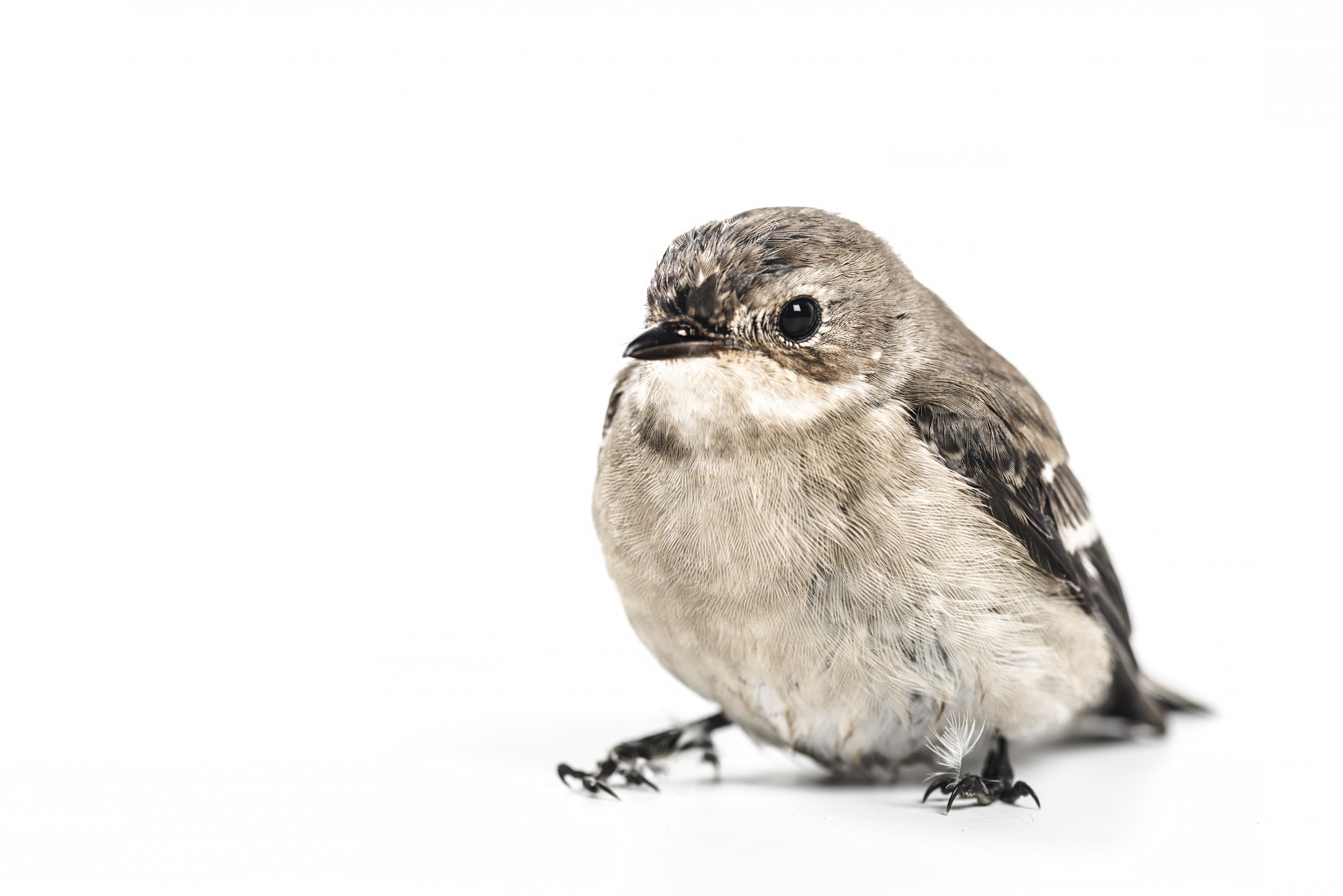Small Great Things: Unpacking Race, Choice, And Hope In Picoult's Novel
Jodi Picoult's Small Great Things is not merely a novel; it is a profound journey into the heart of America's complex relationship with race, privilege, and justice. This powerful narrative, an Amazon Best Book of October 2016, challenges readers to confront uncomfortable truths and examine their own biases, making it an essential read in contemporary discussions about equality. From the very beginning, the story grips you, drawing you into the life of Ruth Jefferson, a Black labor and delivery nurse whose world is irrevocably altered by a single, prejudiced request.
The novel delves deep into themes of racism, choice, fear, and hope, presenting a narrative that is as timely as it is timeless. Picoult, known for her ability to tackle morally ambiguous subjects with incredible empathy, intelligence, and candor, doesn't offer easy answers. Instead, she masterfully weaves a tale that forces us to grapple with the nuances of prejudice and the generational effects of trauma, inviting us to explore the profound impact of inherited beliefs on individual lives and society at large.
Table of Contents
- The Genesis of Small Great Things: A True Story's Echo
- Jodi Picoult: Crafting Stories of Conscience
- At the Heart of the Story: Ruth Jefferson's Ordeal
- Unveiling Systemic Racism: Beyond Individual Prejudice
- The Courtroom Drama: A Battle for Justice
- Choice, Fear, and Hope: Navigating Moral Dilemmas
- Critical Reception and Societal Impact of Small Great Things
- The Enduring Relevance of Small Great Things in Modern America
- Why Small Great Things Resonates: A Call to Empathy
The Genesis of Small Great Things: A True Story's Echo
The power of Small Great Things lies not just in its compelling narrative, but in its grounding in reality. The novel is based on the true story of a labor and delivery nurse who faced a similar discriminatory request. This real-life inspiration lends an undeniable weight and authenticity to Picoult’s exploration of racism in America. It all starts when Ruth Jefferson, a Black labor and delivery nurse, is assigned to a newborn whose parents are white supremacists. The parents, upon learning Ruth's race, demand that she not touch their baby. This demand sets in motion a chain of events that exposes the raw nerves of racial prejudice within the healthcare system and beyond. Picoult’s decision to build her story around such a specific, yet tragically common, instance of discrimination elevates the narrative from mere fiction to a poignant social commentary. By focusing on a professional setting, the book highlights how prejudice can infiltrate even the most critical and seemingly neutral environments, challenging the notion that racism is always overt or easily identifiable. The incident forces Ruth, and by extension, the reader, to confront the insidious nature of inherited biases and the profound impact they have on individuals and communities.Jodi Picoult: Crafting Stories of Conscience
Jodi Picoult has built a formidable career on her ability to tackle complex ethical dilemmas and social issues through the lens of deeply human stories. Her novels often explore the grey areas of morality, forcing characters and readers alike to confront uncomfortable truths and question their own preconceived notions. With Small Great Things, Picoult once again demonstrates her mastery of this craft, using the intimate setting of a delivery room to unpack the vast and often painful landscape of racial inequality. Her meticulous research, a hallmark of her writing, ensures that the legal and medical details are accurate, lending credibility to the unfolding drama. Picoult's approach to sensitive topics is characterized by her "incredible empathy, intelligence, and candor." She doesn't shy away from difficult conversations, instead choosing to illuminate them from multiple perspectives. This commitment to exploring all facets of an issue, without offering easy answers, is what makes her work so impactful and thought-provoking. For Small Great Things, she immersed herself in understanding the experiences of Black individuals in America, consulting with experts and engaging in candid conversations to ensure her portrayal of Ruth's journey was authentic and respectful.Jodi Picoult: A Brief Biography
| Attribute | Detail |
|---|---|
| Full Name | Jodi Lynn Picoult |
| Born | May 19, 1966 (age 57) |
| Birthplace | Nesconset, New York, U.S. |
| Nationality | American |
| Occupation | Novelist |
| Education | Princeton University (BA), Harvard University (M.Ed) |
| Notable Works | My Sister's Keeper, Nineteen Minutes, The Storyteller, Small Great Things |
| Themes Explored | Ethical dilemmas, social justice, family relationships, moral choices, prejudice |
At the Heart of the Story: Ruth Jefferson's Ordeal
The book focuses on race in America and revolves around the protagonist, a delivery nurse, named Ruth Jefferson. Ruth is a dedicated and highly skilled nurse, a single mother to a bright teenage son, and a woman who has worked tirelessly to achieve her professional goals in a predominantly white institution. Her identity as a Black woman in a professional setting is central to the narrative, highlighting the often-invisible burdens and microaggressions that people of color face daily. Ruth's life, though seemingly stable, is built upon a foundation of navigating subtle and overt forms of discrimination. Her character is a testament to resilience and quiet strength. She embodies the struggle of many who strive for excellence within systems that are not always designed to support them. The novel meticulously details her daily life, her aspirations for her son, and her deep commitment to her patients, making her a relatable and deeply sympathetic figure. This careful character development ensures that when the central conflict arises, the reader is fully invested in Ruth's plight and the injustice she faces.The Inciting Incident: A Mother's Unjust Demand
The pivotal moment in Small Great Things occurs when Ruth is assigned to care for the newborn son of Turk and Brittany Bauer, white supremacists who explicitly demand that no Black medical personnel touch their baby. This demand, seemingly simple, ignites a firestorm. The hospital, in an attempt to accommodate the parents while avoiding overt discrimination, reassigns Ruth. However, when the baby goes into distress and Ruth is the only nurse available, she hesitates, following the directive she was given. Tragically, the baby dies, and Ruth is subsequently charged with murder. This incident is not just a plot device; it is a meticulously crafted scenario designed to expose the layers of systemic racism. It forces questions about professional ethics, implicit bias, and the responsibility of institutions to protect their employees from discrimination. Ruth's hesitation, born from a directive rooted in prejudice, becomes the tragic fulcrum upon which the entire story pivots, highlighting the impossible choices that individuals are sometimes forced to make when confronted with deeply ingrained societal hatred.Unveiling Systemic Racism: Beyond Individual Prejudice
Small Great Things is a remarkable examination of racism, moving beyond simplistic notions of individual bigotry to explore the pervasive nature of systemic racism. The novel illustrates how prejudice is not just about overt acts of hatred, but also about the subtle biases embedded within institutions, policies, and everyday interactions. The hospital's initial decision to reassign Ruth, while seemingly a compromise, inadvertently validates the parents' racist demands and puts Ruth in an impossible position. This highlights how well-intentioned but misguided actions can perpetuate discrimination. The narrative skillfully unpacks how racial bias affects everything from legal proceedings to healthcare outcomes. It challenges the reader to consider how deeply ingrained racial stereotypes influence perceptions of guilt, competence, and trustworthiness. Picoult doesn't shy away from depicting the uncomfortable realities of white privilege and the often-unacknowledged advantages it confers, contrasting it sharply with the constant scrutiny and suspicion faced by people of color. The novel argues that racism is not merely a personal failing, but a societal structure that requires dismantling.Inherited Beliefs and Generational Trauma
Picoult’s 2016 novel examines racism, inherited beliefs, and the generational effects of trauma with piercing insight. Through the character of Turk Bauer, the white supremacist father, the book explores how prejudice is often passed down through families, deeply ingrained from childhood. Turk's beliefs are not just his own; they are a legacy of hatred inherited from his parents and community, illustrating how ideology can be as much a part of one's upbringing as language or culture. This generational transmission of prejudice shows how difficult it is to break cycles of hate. Conversely, the novel also touches upon the generational trauma experienced by Black communities. Ruth’s experiences, and those of her ancestors, are subtly woven into the narrative, revealing the cumulative burden of historical and ongoing discrimination. The fear of being judged, the need to be "twice as good" to get half as far, and the constant awareness of one's race in a white-dominated society are all manifestations of this trauma. By juxtaposing these two forms of inherited experience, Picoult underscores the profound and lasting impact of racism on both perpetrators and victims, emphasizing that the past is never truly past.The Courtroom Drama: A Battle for Justice
The core of Small Great Things unfolds within the courtroom, as Ruth Jefferson faces charges that could strip her of her freedom and her future. Her defense attorney, Kennedy McQuarrie, a white public defender, initially believes that race won't be a factor in the trial. However, as the proceedings unfold, it becomes painfully clear that race is not just a factor; it is the central, undeniable force shaping every aspect of the case. The courtroom scenes are taut with tension, as arguments about intent, negligence, and racial bias clash. The legal battle serves as a microcosm of broader societal struggles against injustice. It exposes the inherent biases within the legal system itself, from jury selection to the presentation of evidence. Picoult meticulously details the legal strategies, the emotional toll on Ruth, and the gradual awakening of Kennedy to the realities of systemic racism. The trial becomes a platform for uncomfortable truths to be aired, forcing characters and readers to confront their own assumptions about justice and fairness in a racially divided society.The Role of Privilege and Allyship
A significant subplot in Small Great Things is the journey of Kennedy McQuarrie, Ruth's white defense attorney. Initially, Kennedy embodies a well-meaning but ultimately naive perspective on race, believing that "colorblindness" is the path to equality. She struggles to understand the depth of Ruth's experiences and the pervasive nature of racism, often making well-intentioned but misguided remarks. However, as she delves deeper into Ruth's case and witnesses the overt and subtle manifestations of prejudice, Kennedy undergoes a profound transformation. Her evolution highlights the critical role of privilege and allyship. Kennedy learns that being an ally is not about being "colorblind" or simply avoiding racist acts, but about actively recognizing and dismantling systems of oppression. She learns to use her privilege not to speak for Ruth, but to amplify Ruth's voice and challenge the status quo. This aspect of the novel offers a powerful lesson on what true allyship entails: listening, learning, confronting one's own biases, and taking action, even when it is uncomfortable. It underscores that combating racism requires collective effort, with those in positions of privilege leveraging their influence for change.Choice, Fear, and Hope: Navigating Moral Dilemmas
Jodi Picoult’s Small Great Things is about racism, choice, fear, and hope, weaving these complex themes into a narrative that resonates deeply. The novel constantly presents characters with difficult choices, from Ruth's split-second decision in the delivery room to Kennedy's ethical dilemmas in the courtroom. These choices are often dictated by fear—fear of judgment, fear of losing one's job, fear of violence, or fear of confronting uncomfortable truths. The fear of stepping outside societal norms, even when those norms are unjust, is a powerful undercurrent throughout the story. Yet, amidst the fear and injustice, there is also an unwavering thread of hope. This hope manifests in Ruth's resilience, in Kennedy's growing understanding and commitment to justice, and in the possibility of meaningful dialogue and change. The "small great things" of the title refer to the individual acts of courage, empathy, and kindness that, when accumulated, can lead to significant societal shifts. The novel suggests that while systemic change is necessary, it begins with individual choices to challenge prejudice, to speak up, and to act with compassion. It's a powerful reminder that even in the face of overwhelming odds, hope can be a catalyst for progress.Critical Reception and Societal Impact of Small Great Things
Upon its release, Small Great Things garnered significant attention and critical acclaim. An Amazon Best Book of October 2016, it quickly became a bestseller, sparking widespread discussion about its timely and sensitive subject matter. Critics praised Picoult for her courageous decision to tackle race, privilege, prejudice, justice, and compassion with such depth and nuance. Many reviews highlighted her ability to present multiple perspectives without shying away from the inherent discomfort of the topic, making it a valuable tool for initiating conversations about race. However, the novel also faced some criticism, particularly regarding the portrayal of its Black protagonist by a white author. Some commentators raised questions about the authenticity of the Black experience as depicted by Picoult, while others lauded her extensive research and her stated intention to use her platform to amplify important discussions. Regardless of the varying opinions, the book undeniably achieved its goal of provoking thought and dialogue. From the creators of SparkNotes, summaries and analyses of Small Great Things became widely available, further demonstrating its impact on readers and its place in contemporary literary discourse. Its influence extended beyond literary circles, prompting discussions in book clubs, classrooms, and social justice forums, underscoring its role as a catalyst for reflection on race in America.The Enduring Relevance of Small Great Things in Modern America
Even years after its publication, Small Great Things remains profoundly relevant in modern America. The themes it explores—systemic racism, implicit bias, the complexities of allyship, and the enduring struggle for justice—continue to dominate headlines and social discourse. In an era marked by heightened awareness of racial inequality and ongoing calls for social justice, the novel serves as a powerful reminder of the deep-seated prejudices that persist and the urgent need for continued dialogue and action. The book's exploration of inherited beliefs and the generational effects of trauma resonates strongly in discussions about historical injustices and their contemporary manifestations. It prompts readers to consider how past prejudices continue to shape present realities, from disparities in healthcare and the justice system to everyday interactions. As society grapples with its history and strives for a more equitable future, Small Great Things offers a vital lens through which to examine these challenges, making it an enduring and important piece of literature for anyone seeking to understand the complexities of race in America.Why Small Great Things Resonates: A Call to Empathy
Ultimately, Small Great Things is a remarkable work because it forces readers to confront uncomfortable truths about themselves and society. With incredible empathy, intelligence, and candor, Jodi Picoult tackles race, privilege, prejudice, justice, and compassion—and doesn’t offer easy answers. Instead, she invites readers into the lives of her characters, allowing them to experience the emotional weight of racial discrimination and the moral ambiguities of choice. The novel doesn't preach; it illuminates. It resonates because it asks us to look inward, to examine our own biases, and to consider our role in either perpetuating or dismantling systems of injustice. By presenting a scenario where a Black woman's life is upended by prejudice, and a white woman's understanding of the world is challenged, Picoult creates a powerful narrative bridge. It is a call to empathy, urging us to listen to experiences different from our own, to question our assumptions, and to recognize the "small great things" we can each do to contribute to a more just and compassionate world. Get all the key plot points of Jodi Picoult's Small Great Things on one page, and learn more with this summary of Small Great Things, but truly understand its impact, you must engage with the full story and its profound message.In conclusion, Jodi Picoult's Small Great Things is far more than just a fictional account; it is a vital conversation starter, a mirror reflecting societal prejudices, and a testament to the power of individual and collective action. It challenges us to move beyond superficial understandings of race and to delve into the systemic issues that continue to plague our world. The story of Ruth Jefferson is a poignant reminder that justice is an ongoing struggle, requiring constant vigilance, empathy, and courage.
We hope this deep dive into Small Great Things has offered you valuable insights into its themes and enduring relevance. What are your thoughts on the novel's portrayal of race and justice? Share your perspectives in the comments below, and consider exploring other thought-provoking works by Jodi Picoult on our site. Your engagement helps foster important conversations!

All White Small Dog Breeds

Los 6 sinónimos más confusos en inglés: Small-Little, Big-Large, Tall-High

© 1998, 2000, 2013 Jerry Jindrich. All rights reserved.